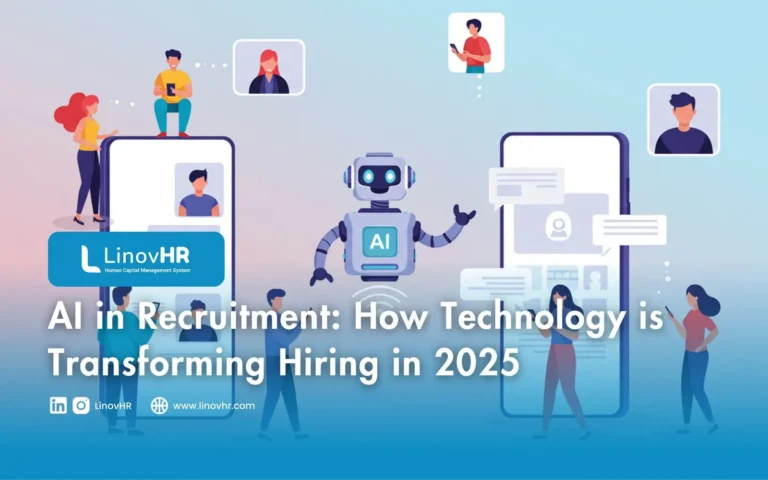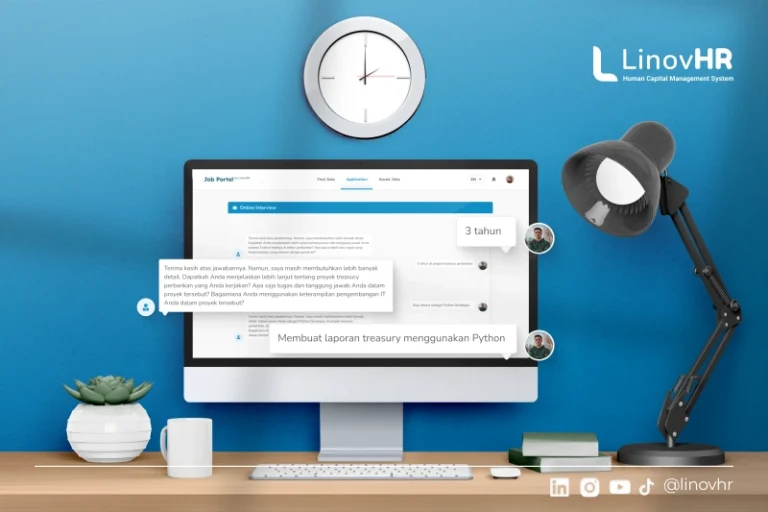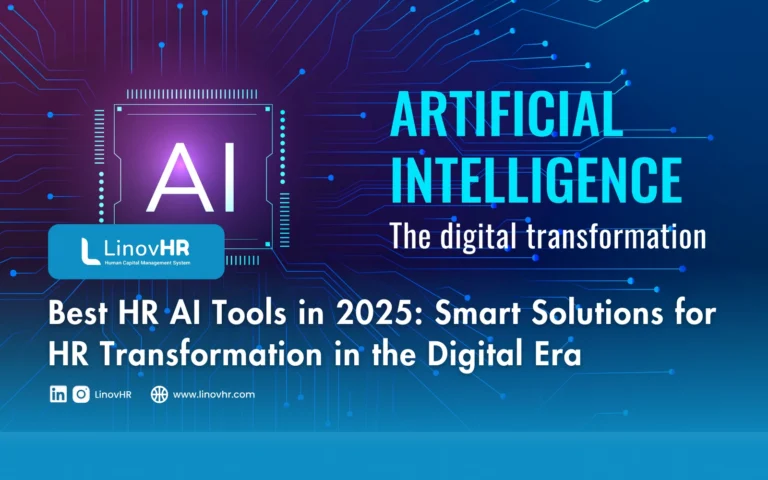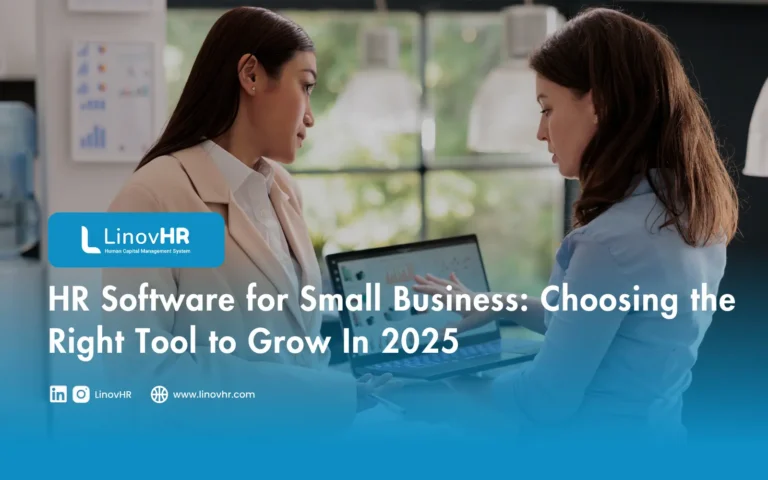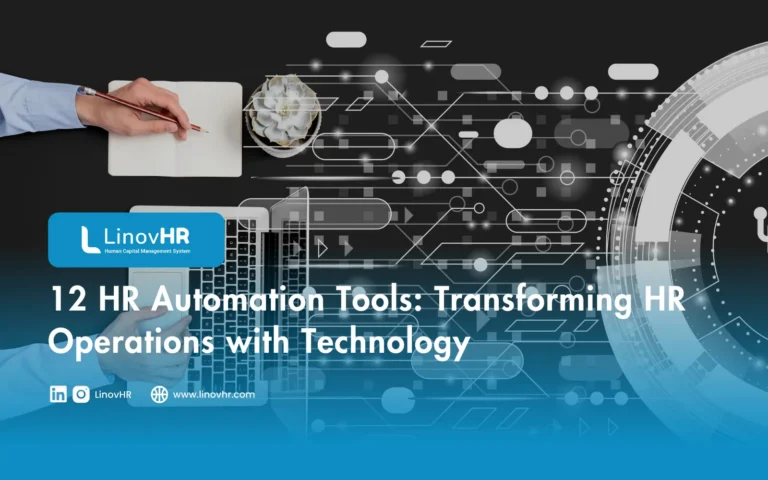Hiring is changing faster than ever. With talent shortages, rising competition, and the demand for faster decision-making, traditional hiring methods can no longer keep up.
That’s why AI in Recruitment is becoming a game-changer, helping organizations automate manual tasks, improve candidate matching, and make more objective, data-driven hiring decisions.
In fact, 76% of companies expect to implement AI technology within the next 12–18 months to stay competitive, according to Gartner.
This rapid shift shows that AI recruiting tools are no longer optional, they are becoming a critical part of modern HR strategies.
From AI resume screening to intelligent candidate sourcing and interview analysis, Artificial Intelligence is redefining how companies find top talent while enhancing the overall candidate experience.
As we move into 2025, leveraging smart AI recruiting technology is essential for organizations seeking to hire better, faster, and more fairly.
So, what exactly is AI in Recruitment, and how is it changing the hiring landscape in 2025?
Let’s dive into the details.
What Is AI in Recruitment?
AI in recruitment refers to the use of artificial intelligence technologies to enhance and automate various stages of the hiring process.
Instead of relying solely on manual and time-consuming tasks such as sourcing, screening, or scheduling, AI enables recruiters to work more efficiently by using intelligent systems that can analyze data, recognize patterns, and make informed recommendations.
In simple terms, AI in recruitment combines automation with intelligence, it not only performs repetitive actions faster but also learns, reasons, and adapts to improve hiring accuracy and decision-making.
This allows HR and talent acquisition teams to focus on what truly matters: building meaningful connections with candidates and ensuring the right talent fits the right role.
Today, AI applications in recruitment are widely used across industries.
They help organizations process large volumes of candidate data, identify qualified talent, predict hiring success, and even personalize communication during the recruitment journey.
According to The Business Research Company, the global market for AI in talent acquisition is projected to reach $1.35 billion in 2025 and $2.67 billion in 2029, growing at a steady rate of over 18% annually.
Ultimately, AI is not designed to replace human recruiters, rather, it serves as a powerful tool to augment human judgment, reduce bias, and create a more efficient, data-driven hiring experience.
The Difference Between AI and Machine Learning
Although the terms artificial intelligence (AI) and machine learning (ML) are often used interchangeably, they actually refer to different concepts.
Artificial intelligence is a broad area of computer science that focuses on building systems capable of performing tasks that typically require human intelligence, such as problem-solving, decision-making, or understanding natural language.
Machine learning, on the other hand, is a subset of AI. It allows systems to learn from data and improve their performance over time without being explicitly programmed.
In other words, while AI represents the overall goal of creating intelligent systems, ML is one of the main techniques used to achieve that goal.
For recruiters and HR professionals, understanding this distinction is valuable.
AI provides the framework for automation and intelligent decision-making in recruitment, while ML powers the algorithms that help identify candidate patterns, predict job fit, and enhance the overall hiring process.
Simply put, AI is the goal, and machine learning is one of the paths to reach it.
Why AI Matters in Modern Hiring
Artificial intelligence has become an integral part of modern recruitment because it helps organizations streamline processes, improve decision-making, and deliver a better experience for both recruiters and candidates.
Below are several reasons why AI is becoming essential in today’s hiring landscape:
1. Boosting Efficiency Through Automation
AI significantly enhances efficiency by automating time-consuming and repetitive recruitment tasks.
Processes such as resume screening, candidate sourcing, and interview scheduling can now be completed in minutes instead of hours.
This automation allows recruiters to focus on more strategic and human-centered activities, such as engaging with candidates and aligning hiring with business goals.
By reducing manual workload, AI helps talent acquisition teams work faster, smarter, and with fewer errors.
2. Turning Recruitment into a Proactive Strategy
One of AI’s most powerful advantages is its ability to shift recruitment from a reactive to a proactive process. With predictive analytics, AI can identify high-potential candidates even before they apply.
This enables recruiters to reach out and build relationships early, leading to better-quality hires and reduced time-to-fill.
Instead of waiting for resumes to arrive, recruiters can proactively engage top talent and stay ahead in the competitive job market.
3. Delivering Personalized Candidate Experiences
AI empowers recruiters to create personalized experiences throughout the candidate journey.
It can recommend jobs tailored to a candidate’s profile, skills, and interests, while also automating personalized communication through chatbots and smart messaging tools.
This level of personalization keeps candidates engaged and informed at every stage, reducing drop-offs and improving satisfaction.
As a result, organizations can strengthen their employer brand and attract top talent more effectively.
4. Enabling Data-Driven Recruitment Decisions
AI-driven analytics give recruiters access to valuable insights that enhance decision-making.
By collecting and analyzing candidate data, AI helps identify trends, measure performance, and optimize recruitment strategies.
It can also uncover hidden patterns that predict candidate success or identify potential skill gaps.
With these insights, hiring teams can make faster, more accurate decisions while improving the overall quality of hire.
5. Promoting Fair and Inclusive Hiring
AI also plays an important role in supporting diversity and inclusion in recruitment.
Well-designed AI systems evaluate candidates based on objective criteria, such as skills and experience, rather than demographic factors.
This reduces the risk of unconscious bias that often occurs in traditional hiring.
When implemented ethically, AI promotes fairness and transparency while helping organizations build a more inclusive workforce.
How AI Is Used in Recruitment Today
AI technology is now integrated into nearly every stage of the recruitment process, helping HR professionals save time, enhance accuracy, and improve candidate experience.
From attracting potential applicants to onboarding new hires, AI makes each step more efficient and data-driven. Here’s how AI transforms each stage of the modern hiring journey:
1. Sourcing and Attraction
At the beginning of the recruitment process, AI helps companies attract the right talent through smarter job postings and proactive sourcing.
AI tools can generate clear, inclusive, and keyword-optimized job descriptions that appeal to diverse and qualified candidates.
In addition, AI-powered sourcing platforms search across job boards, social media, and internal databases to identify both active and passive candidates.
Recruiters can also use AI to send personalized outreach messages to potential candidates at scale, increasing engagement and improving the quality of the applicant pool.
2. Screening and Shortlisting
Screening is one of the most common and impactful uses of AI in recruitment. Using Natural Language Processing (NLP) and smart algorithms, AI can scan thousands of resumes in seconds, categorizing candidates based on skills, experience, and education.
This automated matching process ensures only the most relevant candidates move forward, saving recruiters significant time.
Additionally, AI-powered chatbots assist with pre-screening by answering candidate questions, collecting basic information, and updating applicants on their progress, providing a faster and more engaging experience for everyone involved.
3. Interviewing and Assessment
AI has revolutionized the interview stage by automating scheduling, improving assessments, and enhancing objectivity.
Smart scheduling tools integrate with recruiters’ calendars to automatically arrange interviews that fit both parties’ availability.
Meanwhile, AI-driven assessments use games, simulations, or coding challenges to evaluate cognitive abilities, problem-solving skills, and technical proficiency.
Some AI platforms can even record and transcribe video interviews, helping recruiters review responses consistently and reduce human bias.
This stage benefits both recruiters and candidates through greater fairness and efficiency in evaluations.
4. Selection and Offers
At the selection stage, AI provides data-driven insights to help recruiters and hiring managers make better decisions. By analyzing patterns from previous successful hires, AI can predict which candidates are most likely to excel and stay longer in the role.
It can also generate compensation benchmarks, recommend optimal salary ranges, and automate offer letter creation. This not only speeds up the decision-making process but also ensures greater consistency and accuracy in hiring.
In short, AI transforms selection from a subjective process into one guided by real data and measurable outcomes.
5. Onboarding and Integration
Once a candidate accepts the offer, AI continues to play a role in creating a seamless onboarding experience. Through personalized onboarding portals, new hires can access required documents, complete digital signatures, and follow tailored training modules.
AI systems track progress automatically, ensuring every step, from paperwork to orientation, is completed on time.
This structured, data-supported onboarding process helps new employees feel welcomed and engaged from day one, setting the tone for long-term success and retention.
Real-World Examples of AI in Recruitment
Many global companies have already proven the effectiveness of AI in recruitment, demonstrating how automation and data-driven insights can significantly enhance hiring outcomes.
These real-world examples show how AI transforms the way organizations attract, assess, and engage with candidates, improving both efficiency and candidate satisfaction.
1. Unilever
Unilever is one of the pioneers in adopting AI for large-scale recruitment. The company implemented AI-powered video interviews combined with predictive analytics to streamline its hiring process.
Candidates complete short video interviews, which are then analyzed by AI tools that assess verbal and non-verbal cues to predict job suitability.
This approach has helped Unilever reduce hiring time, increase candidate diversity, and minimize human bias in decision-making.
By integrating AI, Unilever successfully created a more efficient, inclusive, and data-driven recruitment system.
2. L’Oréal
L’Oréal, a leading global beauty brand, leverages AI chatbots to enhance candidate communication and engagement throughout the hiring journey.
The chatbot assists applicants by answering common questions, guiding them through the application steps, and automatically scheduling interviews.
This innovation not only improves the candidate experience by providing instant responses but also allows recruiters to focus on more strategic and value-adding tasks.
As a result, L’Oréal’s recruitment process has become faster, more organized, and more personalized, demonstrating how AI can humanize, not replace, the hiring process.
Challenges and Ethical Concerns in AI Recruitment
While AI offers many benefits in modern recruitment, it also introduces new challenges and ethical dilemmas that HR leaders must address.
From data quality issues to fairness and compliance, the responsible use of AI requires transparency, strong governance, and human oversight.
Below are key challenges organizations face when integrating AI into their hiring processes.
1. Data Quality and Accuracy
AI systems rely heavily on the quality of data they receive. Without clean, structured, and reliable data, AI cannot generate meaningful insights or make fair recommendations.
In recruitment, inconsistent or incomplete candidate data can lead to inaccurate predictions and poor hiring decisions.
Organizations must ensure that their recruitment platforms collect, organize, and connect data across every touchpoint, from sourcing and screening to engagement and interviewing, so AI can learn effectively and deliver accurate results.
2. Algorithmic Bias and Fairness
One of the biggest ethical concerns in AI recruitment is the risk of bias within algorithms. If the training data reflects existing human biases, AI may unintentionally reinforce those inequities in hiring decisions.
Modern AI platforms must include bias detection and mitigation tools that continuously monitor outcomes for fairness.
Transparent grading based on skills and experience, rather than demographic or background data, is essential to ensure that automation promotes diversity and inclusion rather than undermining it.
3. Transparency and Trust
AI in recruitment must move beyond “black box” decision-making. Recruiters and candidates alike need to understand how and why certain candidates are being recommended.
Using explainable AI builds trust by providing clarity around decision logic and evaluation criteria.
When recruiters can see the reasoning behind AI recommendations, they’re more confident in using technology to support, rather than replace, human judgment.
4. Legal and Ethical Compliance
As regulations surrounding AI and employment evolve, organizations must ensure that their AI tools comply with data privacy laws, anti-discrimination policies, and ethical standards.
This includes documenting AI decision-making processes and ensuring accountability throughout the recruitment journey.
HR leaders should also train teams to use AI responsibly, balancing efficiency with fairness and respecting candidates’ rights to transparency and consent.
5. Adoption and Human Buy-In
Even the most advanced AI solutions can fail if recruiters don’t trust or understand them. Successful adoption depends on positioning AI as a supportive tool, not a replacement for human roles.
HR leaders can foster buy-in by offering hands-on demos, collecting feedback, and creating a culture that values experimentation and continuous learning.
This approach empowers recruiters to use AI confidently, combining human intuition with technological precision.
Best Practices for Implementing AI Tools in Recruitment
Successfully adopting AI in recruitment requires more than just new technology, it demands a thoughtful strategy, ethical awareness, and continuous optimization.
To fully realize AI’s potential while maintaining fairness and human connection, HR leaders should follow these key best practices when integrating AI into their hiring workflows.
1. Define Clear Goals and Objectives
Before adopting any AI tool, organizations should clearly identify the specific recruitment challenges they aim to solve.
Whether the goal is to streamline candidate sourcing, automate resume screening, or improve candidate engagement, clarity ensures that AI solutions are purpose-driven.
By setting measurable objectives, HR teams can evaluate the effectiveness of AI tools and align their use with broader talent acquisition strategies.
2. Choose the Right AI Recruitment Tools
Not all AI platforms are created equal. Select solutions that fit your existing HR tech stack and meet your organization’s unique hiring needs.
Evaluate features such as data integration capabilities, customization options, and bias detection mechanisms.
The best AI tools in recruitment are those that enhance, not disrupt, existing workflows while improving efficiency and decision-making quality.
3. Balance Automation with Human Touch
While AI can automate repetitive tasks and speed up processes, recruitment still requires human judgment, empathy, and relationship-building.
Use AI to handle high-volume tasks like screening or scheduling, but keep recruiters involved in evaluating soft skills and cultural fit.
Striking this balance ensures candidates have a more authentic and personalized experience, strengthening your employer brand.
4. Ensure Ethical and Unbiased AI Usage
Fairness and transparency are critical when applying AI in recruitment. Regularly audit AI-driven decisions to identify potential biases and ensure compliance with ethical and legal standards.
Use explainable AI systems that make recommendations transparent, helping recruiters understand why certain candidates are shortlisted. This proactive approach builds trust among both recruiters and candidates.
5. Train and Empower Your HR Team
Introducing AI requires more than just installation, it requires training and mindset adaptation.
Equip HR professionals with the knowledge to interpret AI insights, handle data responsibly, and make informed hiring decisions.
Encourage open discussions and feedback to reduce resistance and build confidence in AI’s value as a supportive recruitment tool.
6. Continuously Monitor and Optimize
AI performance should be monitored and refined regularly. Track key recruitment metrics such as time-to-hire, candidate quality, and satisfaction to measure AI’s impact.
Use this data to fine-tune your recruitment strategy, ensuring that AI remains aligned with evolving business goals and workforce needs. Continuous improvement helps organizations stay competitive and future-ready.
Will AI Replace Recruiters?
The short answer is no. AI will not replace recruiters, but it will fundamentally transform their roles.
While AI in recruitment excels at automating repetitive and data-driven tasks such as screening resumes, scheduling interviews, or analyzing hiring trends, it cannot replicate the human qualities essential to effective recruiting.
Skills like empathy, strategic thinking, relationship-building, and understanding cultural fit remain uniquely human and irreplaceable.
Rather than replacing recruiters, AI acts as a powerful assistant, taking over administrative burdens so recruiters can focus on high-value, people-centered responsibilities.
This evolution marks the rise of the “augmented recruiter”, who uses AI insights to make smarter, faster decisions while dedicating more time to advising hiring managers, engaging candidates, and shaping long-term talent strategies.
In essence, the future of AI in recruitment isn’t about substitution but collaboration, where technology empowers humans to recruit smarter, not harder.
How LinovHR Leverages AI to Improve Recruitment
At LinovHR, Artificial Intelligence plays a central role in transforming the way organizations attract, evaluate, and hire top talent.
Through its AI-powered Recruitment Module, LinovHR helps HR teams streamline every step of the hiring process, from resume screening to candidate evaluation, ensuring that recruitment becomes faster, more accurate, and data-driven.
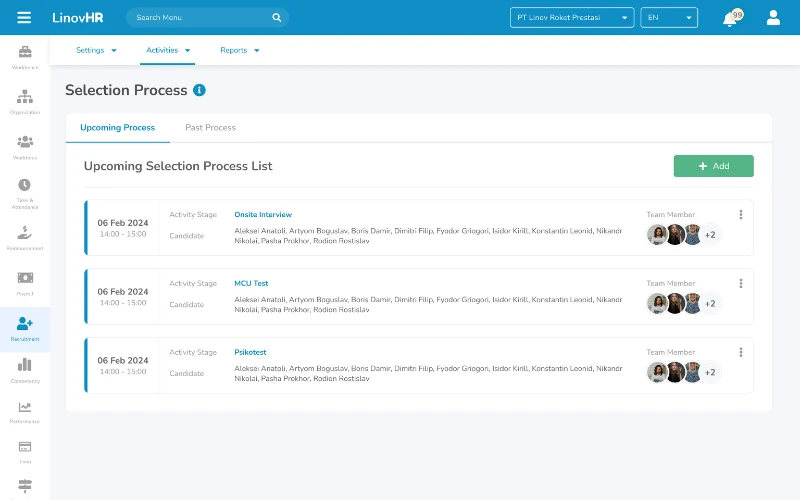
One of LinovHR’s most innovative features is the Interview AI, an intelligent system designed to conduct structured and objective virtual interviews.
This technology automates scheduling, interviewing, and scoring, saving valuable time for HR professionals while maintaining fairness and consistency in assessments.
The AI evaluates candidates based on predefined criteria such as technical skills, soft skills, and cultural fit, minimizing human bias and ensuring every applicant is judged fairly.
LinovHR’s AI capabilities are especially valuable for organizations handling high-volume or mass recruitment, allowing multiple interviews to be conducted simultaneously without compromising quality.
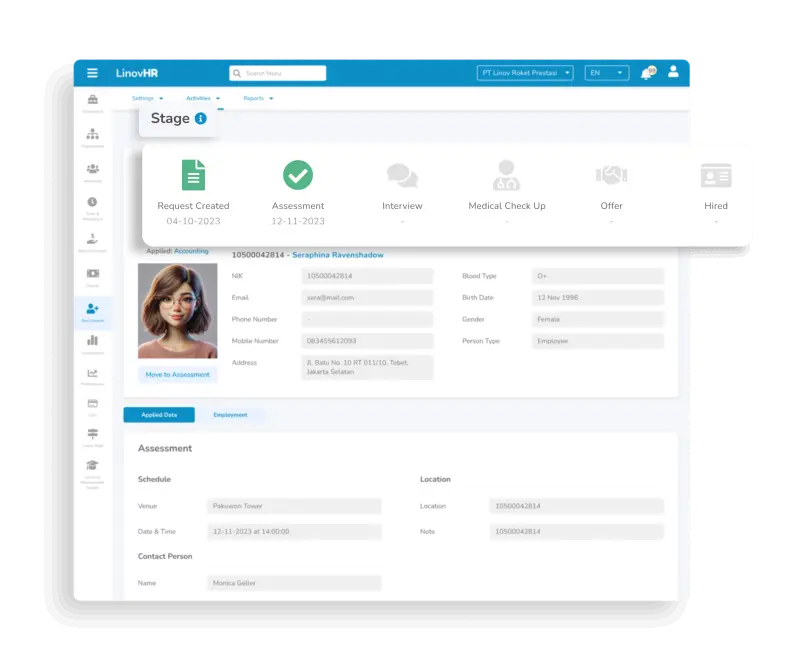
In addition, its Recruitment Dashboard and Career Website Integration provide a complete view of the hiring pipeline and enhance the candidate experience through real-time updates and automated communication.
By combining automation with intelligent analytics, AI in Recruitment through LinovHR empowers companies to make smarter, faster, and more objective hiring decisions.
Conclusion
The rise of AI in Recruitment marks a new era of efficiency, objectivity, and smarter decision-making in the hiring process.
By automating repetitive tasks and offering valuable insights, AI empowers HR professionals to focus on strategic and human-centered aspects of recruitment.
Yet, the most successful hiring strategies come from combining advanced technology with human intuition and empathy.
Ready to experience how AI can transform your hiring process?
Learn more about LinovHR’s recruitment solutions and request a free demo today!


